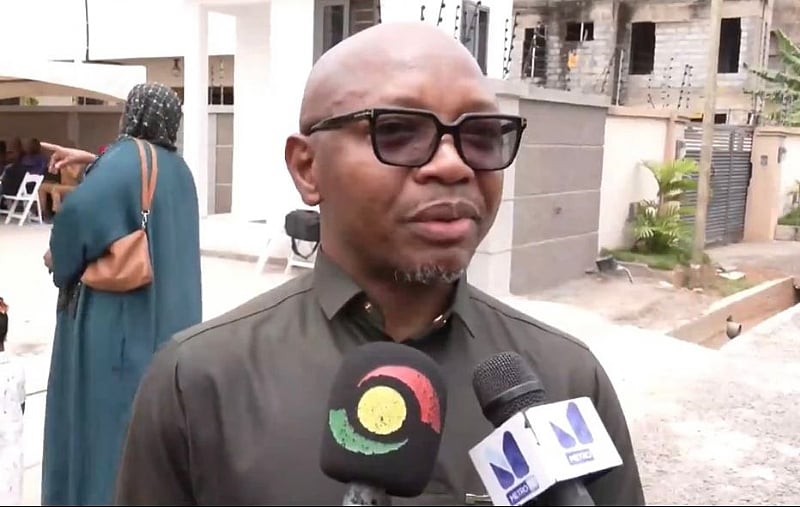The recent actions of Johnson Asiedu Nketiah, National Chairman of the National Democratic Congress (NDC), have sparked internal controversy and raised questions about his political ambitions. Asiedu Nketiah, widely known as General Mosquito, embarked on a three-day “thank you” tour across sixteen constituencies in the Eastern Region of Ghana following the party’s performance in the previous elections. This move has drawn criticism, particularly from Ras Mubarak, a former Member of Parliament and prominent NDC member, who argues that such tours are traditionally reserved for candidates who led the party into the election, not for party officials like the National Chairman. This perceived breach of established norms has ignited a debate within the NDC about the appropriateness of Asiedu Nketiah’s actions and their potential implications for party unity and focus.
Mubarak’s critique centers on the established practice within the NDC and, arguably, within broader political traditions. He contends that post-election “thank you” tours are intrinsically linked to the individuals who spearheaded the campaign, namely, the presidential or parliamentary candidates. These tours are seen as a direct expression of gratitude from the candidates to the electorate for their support and votes. Party executives, while playing crucial roles in the campaign, have not historically undertaken such tours independently. Mubarak emphasizes that this separation of roles maintains a clear distinction between the candidates, who are directly accountable to the voters, and the party officials, whose responsibilities lie in managing the party’s overall operations. He suggests that Asiedu Nketiah’s tour blurs this line, creating a potentially confusing dynamic where the party chairman assumes a role traditionally reserved for the candidate.
Furthermore, Mubarak characterizes Asiedu Nketiah’s actions as “a dangerous precedent,” arguing that it deviates from established party norms and could potentially destabilize the party’s internal structure. By embarking on a solo “thank you” tour, the National Chairman is perceived as potentially usurping a role traditionally held by the flagbearer, which could create confusion among party ranks and the public. This departure from tradition, Mubarak warns, could set a precedent for other party officials to engage in similar activities, fostering internal competition and potentially undermining the authority of the flagbearer. The concern is that this could fracture party unity, especially in the aftermath of an election where consolidation and strategic planning for the future are critical.
Adding to the controversy is the suspicion that Asiedu Nketiah’s tour is a veiled attempt to bolster his own political standing and potentially position himself for a future presidential bid. Mubarak explicitly accuses him of using the “thank you” tour as a platform to advance “premature presidential ambitions.” This allegation raises concerns about the chairman’s motives and whether he is prioritizing personal political gain over the party’s overall interests. It also introduces an element of distrust, as some within the NDC may now view Asiedu Nketiah’s actions through the lens of personal ambition rather than genuine gratitude towards the electorate. This perceived self-serving behavior could further exacerbate tensions within the party and undermine the chairman’s authority.
Mubarak argues that such behavior is “intolerable” and necessitates a direct and unequivocal response from within the party. He calls for party leaders to openly address the issue with Asiedu Nketiah and to firmly reiterate the established norms and protocols surrounding post-election “thank you” tours. This call for intervention reflects a deeper concern about maintaining party discipline and preventing internal power struggles from overshadowing the party’s broader agenda. Mubarak’s insistence on a direct confrontation suggests that he believes the issue is serious enough to warrant potentially uncomfortable conversations among top party officials in order to prevent further damage and ensure that established protocols are respected.
The controversy surrounding Asiedu Nketiah’s “thank you” tour underscores the delicate balance of power within political parties and the importance of adhering to established norms and traditions. Mubarak’s vocal criticism highlights the potential for internal disputes to arise when these norms are perceived to be violated, especially when such actions are viewed as being motivated by personal ambition. The situation also raises questions about the future direction of the NDC and the potential for internal divisions to emerge as individuals position themselves for future leadership roles. The party’s response to this controversy will likely be a crucial indicator of its ability to maintain internal cohesion and focus on its broader political objectives.


